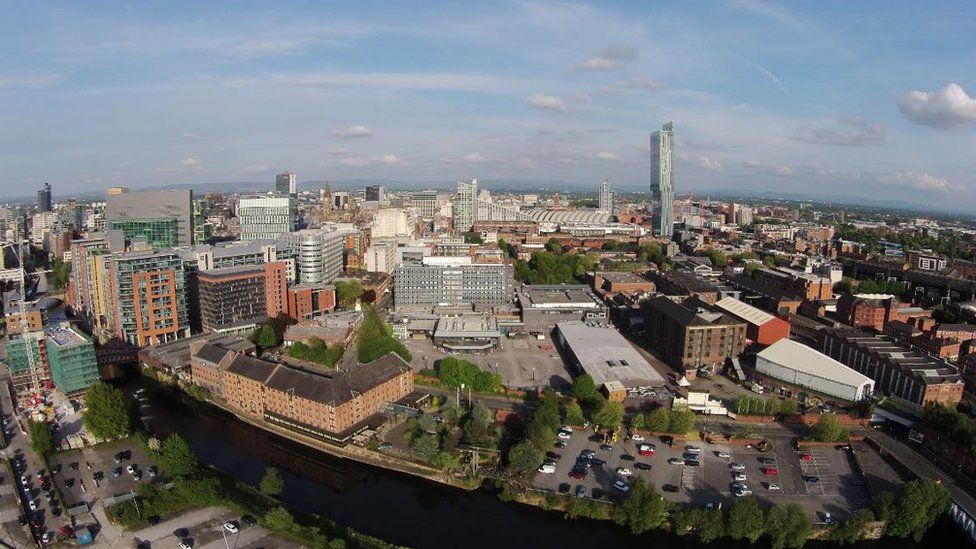Council to give Manchester's 'most vulnerable' housing priority
- Published

Manchester's "most vulnerable people" are to be given priority for rehousing under new council plans.
The city's council is reviewing its social housing policy, which it said currently allows anyone to apply for housing, "regardless of their need".
As a result, 15,000 households have applied for the estimated 2,200 homes expected to become available by 2020.
Councillor Suzanne Richards said it was "vital" the system helped people in crisis or facing homelessness first.
The review proposes a change to who will qualify to join the social housing register and to the priority level awarded to those accepted, to ensure the best use is made of the housing stock across the city.
A council spokesman said the changes were needed as "unlike many areas, Manchester allows anyone to put their name on the register, regardless of their need".
'High demand'
Manchester has more than 65,000 social rent homes, about 30% of all housing stock in the city, but the spokesman said that "with fewer households leaving their tenancy than in previous years", only an estimated 2,200 would be re-let in 2019/20.
By law, the council must agree the rules around who qualifies to be put on the housing register and how they are prioritised to receive a social home.
Ms Richards, the council's executive member for housing and regeneration, said social housing was "in high demand across the city, so it is vital that our rules around who accesses these homes are designed to help those in most need".
She added that it was important that people across the city became involved with a public consultation on the review, which runs until 30 August, so the council can find out "what we can do to make sure our most vulnerable people have the support they need".
Polly Neate, chief executive of Shelter, said instead of "having to impose rules and restrictions on who can apply for a social home, the priority should be building on a vast scale".
"When 15,000 households are forced to compete for just a couple of thousand social homes, the housing emergency is brought into sharp focus," she said.
"An unforgiving combination of wildly unaffordable rents and welfare cuts means huge numbers of people are desperate for social housing - but we're simply not building enough to keep up with demand."
- Published2 August 2016